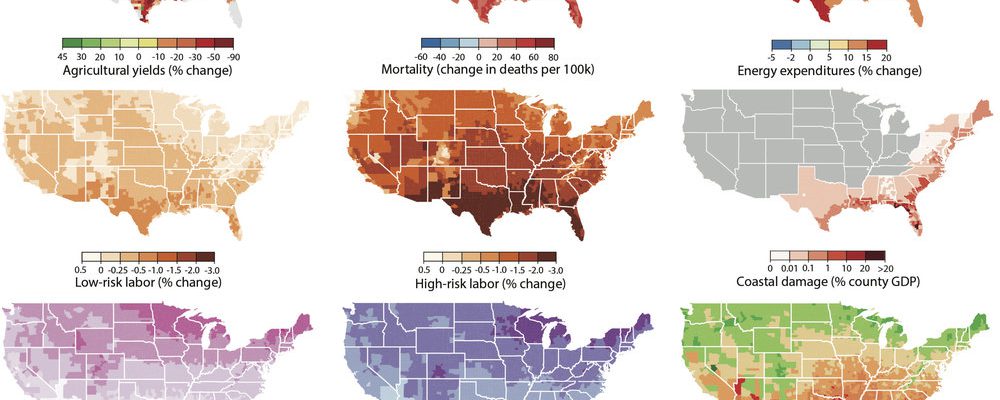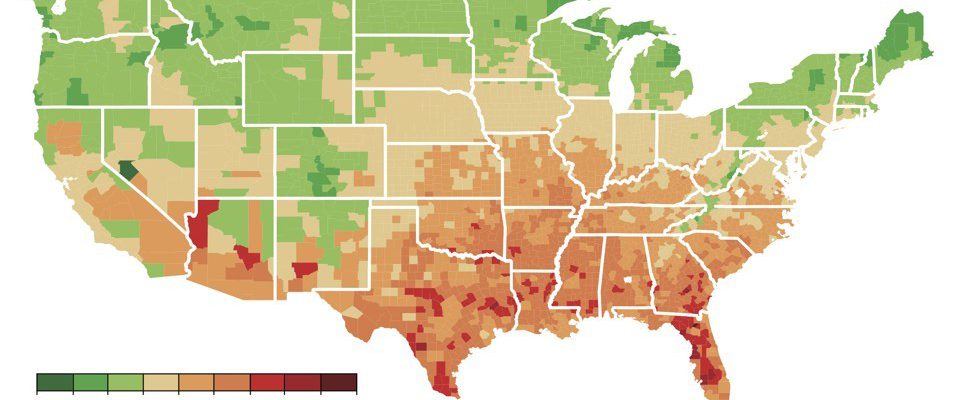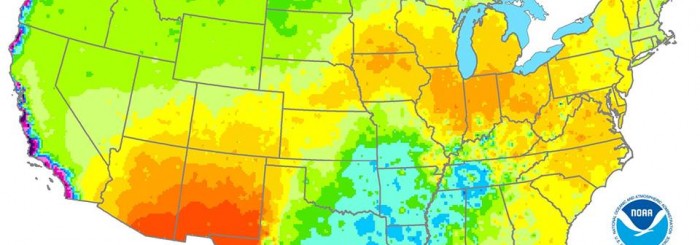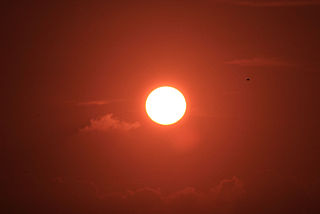Climate science
-

An article published this week in The Conversation pointed out that tropical zones on Earth are currently expanding, and that could mean problems for Australia among other places. Here in the Southeast, most of us are not quite in the tropical zone now, but if that zone expands, it is likely to change the climate…
-

Earlier this week I posted an article discussing the economic damages of climate change on different areas of the US and how it is expected to hit the Southeast particularly hard. Here is another article with a better breakdown of the costs by different sectors. Crime, both violent and property, is expected to increase more…
Posted in: Climate science -

A new study released this week indicates that the American South will feel the worst economic effects of a warming climate. Articles in The Atlantic here and in the New York Times here describe the results of the study published today in Science which use a new economic method of calculating economic costs by calculating…
-

As a graduate student one of the things I studied was the climate of the last Ice Age about 18,000 years ago. Physics Today just published a really interesting study of the end of the Ice Age in Europe and how changes in sea level affected life there. It’s based on a computer simulation that…
-

One of the consequences of the rainy conditions in the central US this year has been exceptional runoff of fertilizer and other agricultural chemicals as well as animal waste, most of which make their way down the Mississippi River into the Gulf of Mexico. These chemicals help lead to the development of a “dead zone”…
-

Even though this time of year has the longest day, for most parts of the country it is not the hottest day. Why not? The short answer is thermal lag, which means that it takes a while for things to heat up (especially water), so temperatures will continue to rise for several weeks. Although with…
Posted in: Climate science -

It’s not the heat, it’s the (lack of) humidity. Dr. Jeff Masters posted an interesting article in Weather Underground today discussing a potential new record low humidity record for the world, set in Iran. However, there is another contender for the record from Needles CA in May 2014, with a temperature of 102 F and…